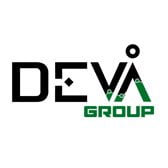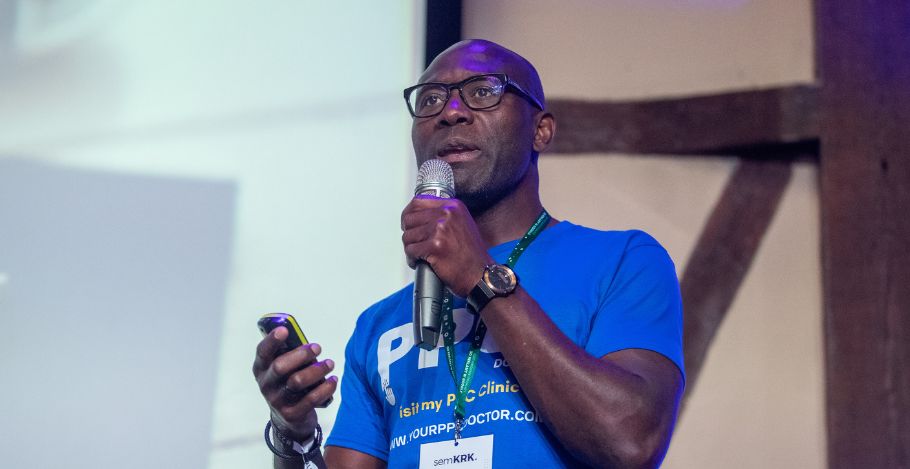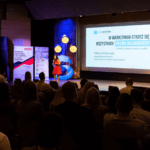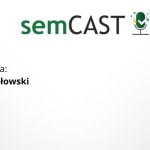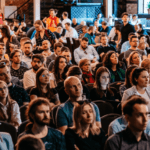Czas na kolejną porcję wiedzy prosto od prelegentów semKRK#23 BIG! Tym razem na pytania, które padły podczas konferencji na Slido, odpowiada Serge Nguele – Your PPC Doctor. Jeśli zastanawiasz się, czy warto inwestować w Microsoft Ads i jak robić to skutecznie, koniecznie sprawdź jego wskazówki. Serge wyjaśnia, na jakich rynkach ta platforma ma największy potencjał, czym różni się od Google Ads i jak podejść do optymalizacji kampanii, by osiągnąć najlepsze rezultaty.
In which countries does it make the most sense to launch Microsoft Ads?
 Serge Nguele
Serge NgueleThe best markets for Microsoft Ads tend to align with countries where PC market share is high and where there’s strong search volume across Bing and the wider Microsoft ecosystem. These are typically English-speaking and corporate-heavy markets. Based on the latest data:
– The top-performing countries by far are the US (39%), Canada (27%), Germany (26%), and the UK (23.5%), where Microsoft’s ecosystem is deeply embedded. This is primarily driven by corporate defaults like Edge and Bing, Windows dominance, and LinkedIn integrations.
– Australia and France are also strong markets, followed closely by key European countries like Spain, Italy, and the Netherlands.
– The Nordic markets (Norway, Sweden, Denmark) have smaller populations but very affluent users and high online spending per user, which often makes them worthwhile for B2B or premium services.
How does the conversion rate usually differ between Google Ads and Microsoft Ads? (Same industry)
 Serge Nguele
Serge NgueleOn average, Microsoft Ads tends to deliver higher conversion rates, and this happens for a few reasons:
– The Microsoft audience skews older, more affluent, and more corporate or B2B, typically decision-makers with higher intent.
– There are fewer distractions and less noise compared to Google’s broader reach.
In terms of benchmarks, you can often expect 10 to 30 percent higher conversion rates on Microsoft Ads in industries like B2B, finance, SaaS, consulting, legal, and healthcare.
For e-commerce, results are often comparable or slightly better, particularly for high-ticket items.
The key caveat is that volume is lower, so while the quality can be higher, scale is more limited than on Google. This is exactly why I always recommend using Microsoft Ads not as a replacement for Google, but as a complement. It’s about having a PPC brain that works with two hemispheres, as I explained during my talk.
Do you recommend copying the campaign structure from Google Ads or building a new one in Microsoft Ads?
 Serge Nguele
Serge NgueleUnless you’re in a rush, the right mindset is not to treat Microsoft as a smaller version of Google. It’s a different platform with different strengths, and it deserves a setup that respects that.
That said, the Google Import tool is excellent for getting started quickly. It allows you to:
– Fast-track setup
–Maintain familiar reporting structures
– Manage campaigns more easily in the short term
However, this should be viewed as a starting point, not the ultimate solution. The platforms are not identical, and here’s why:
– Audience behaviour is different, skewing older, more affluent, and more desktop-heavy.
– Ad formats behave differently. RSAs, for example, often perform better with fewer headlines on Microsoft.
– Keyword volume differs, which means bids and budgets usually need adjusting.
– You can unlock LinkedIn profile targeting, which is unique to Microsoft and can significantly reshape your strategy, especially for B2B.
My advice:
Use the import tool if speed is a priority, but don’t stop there. To truly maximise the benefits of Microsoft Ads, approach it on its own terms. The accounts that tend to scale best are those built with a structure tailored to the platform, the audience, and its unique tools.
Have you tried running Microsoft Ads in Poland? Data shows that few people use the Bing browser in Poland. What is your experience?
 Serge Nguele
Serge NgueleNot yet, but after my presentation, I might soon (let’s see). Jokes aside, yes, you are right. Bing’s market share in Poland has historically been under 5 percent, making it a challenging market in terms of scale.
That said, it can still work for:
– International-facing campaigns
– B2B targeting large corporates that are embedded in the Microsoft ecosystem
– Niche, intent-based campaigns running on modest budgets
More in Poland than elsewhere, it’s not a volume play, but it can still deliver high-quality leads in the right use cases.
Do you optimise ad sets differently for Google Ads and Microsoft Ads? Do you see a difference in how different ads/assets perform on both platforms?
 Serge Nguele
Serge NgueleYes, there are differences in both performance patterns and how you approach optimisation between the two platforms:
– RSA behaviour: RSAs tend to work better on Microsoft when they are kept lean, with fewer headlines and descriptions than you might use on Google. Overloading assets can reduce CTR on Bing.
– Ad copy tone: More formal, direct, and decision-focused messaging generally outperforms playful or casual styles. This aligns with Microsoft’s more professional and desktop-heavy audience.
– LinkedIn profile targeting: This is a unique advantage in Microsoft Ads. You can adjust bids based on job function, industry, or company, which is a powerful lever that doesn’t exist in Google.
– Device breakdown: Microsoft’s audience is predominantly desktop (around 60%), compared to roughly 30 to 40 percent desktop on Google. This impacts both ad copy and landing page design. Desktop-friendly CTAs and layouts often perform better here.
A key difference with Microsoft Ads is in how you structure campaigns. Campaign consolidation generally works better than highly granular segmentation. This is because:
– Microsoft operates with lower search volume than Google.
– Its AI bidding models rely on smaller data pools, so if you spread that data too thin across too many campaigns, ad groups, or audience splits, performance suffers.
The simple rule:
Fewer, broader campaigns = better data density = faster learning = stronger results.
This doesn’t mean you should abandon meaningful segmentation, things like key geographies, languages, or product categories still matter. But be selective. Only split where it truly makes sense based on intent or value. Otherwise, let consolidation power machine learning.
On Google, success often comes from creative variety and granular segmentation, thanks to larger audiences and higher data volumes. On Microsoft, it’s typically clarity, simplicity, and a more consolidated structure, both in terms of ad copy and campaign design… that wins. The goal isn’t to treat Microsoft as a smaller version of Google, but to respect the differences and capitalise on the platform’s strengths.
Serge, dziękujemy za tak dogłębną analizę i praktyczne wskazówki! Dostaliśmy kolejne potwierdzenie, że Microsoft Ads nie jest jedynie kopią Google Ads, ale odrębną platformą z własną specyfiką i unikalnymi możliwościami. Mamy nadzieję, że uzbrojeni w tę wiedzę, będziecie w stanie jeszcze skuteczniej docierać do swoich klientów. A już niebawem zapraszamy na kolejny wywiad z prelegentem semKRK!

